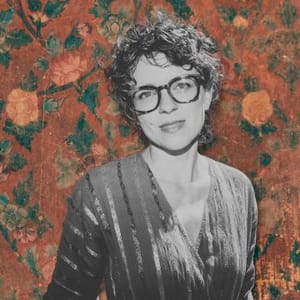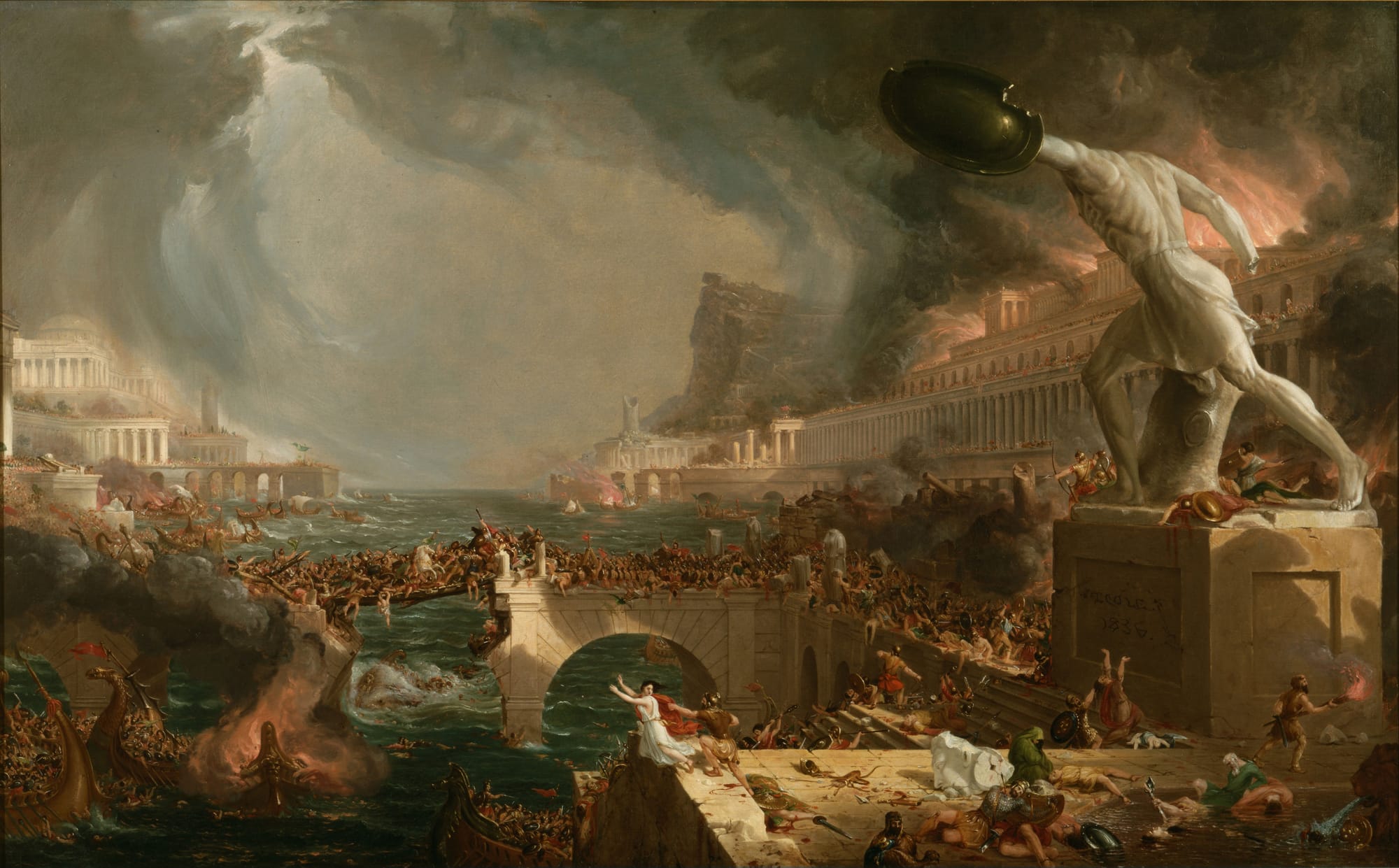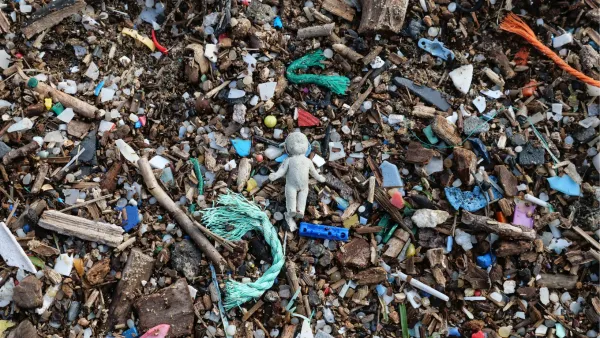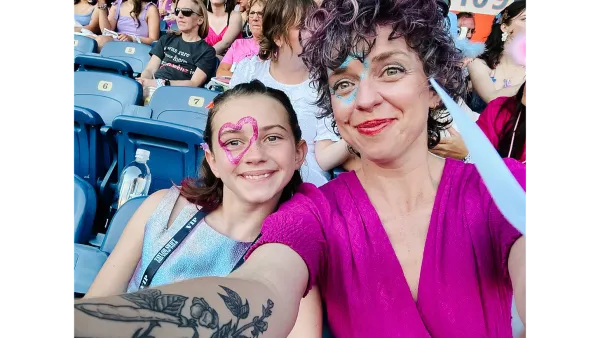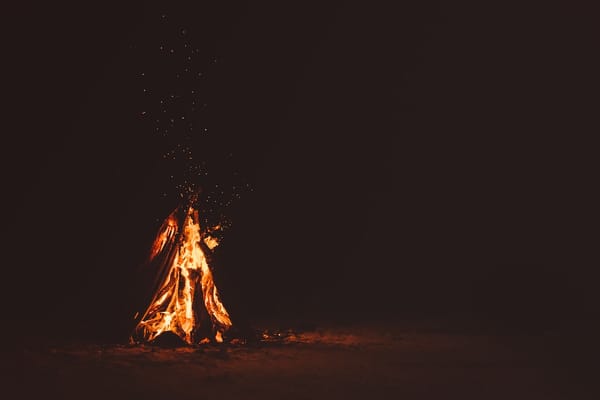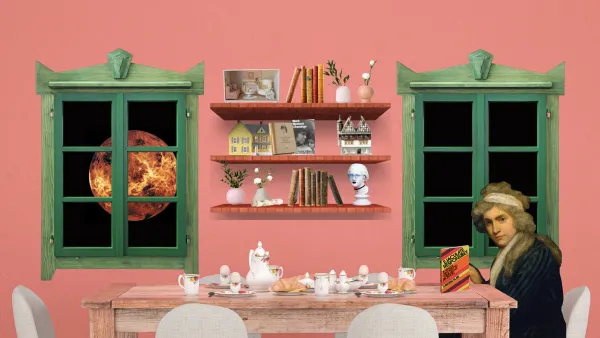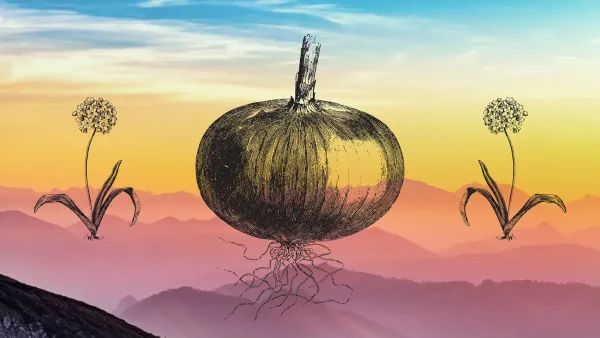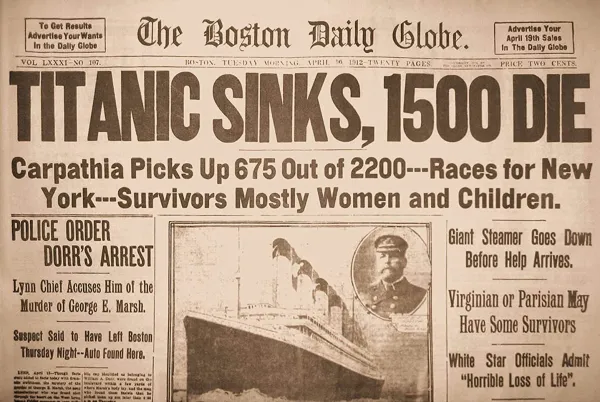Maybe I feel like the world is ending because I was taught the world had a beginning. In my fourth grade classroom, there was a timeline stapled along the length of a classroom wall. It started in the Stone Age and ended in the 1990s. I’d trace the line sometimes, marveling that every discovery, every war and every peace moved toward that moment in my classroom.
Progress is the promise of the textbook timeline. It turns history into a linear narrative with a beginning, a middle and an end. Joseph Priestley made the most influential timeline of the Enlightenment, A New Chart of History. It started in 1100 BC, at the end of the Bronze Age, and ended in the 1700s AD.
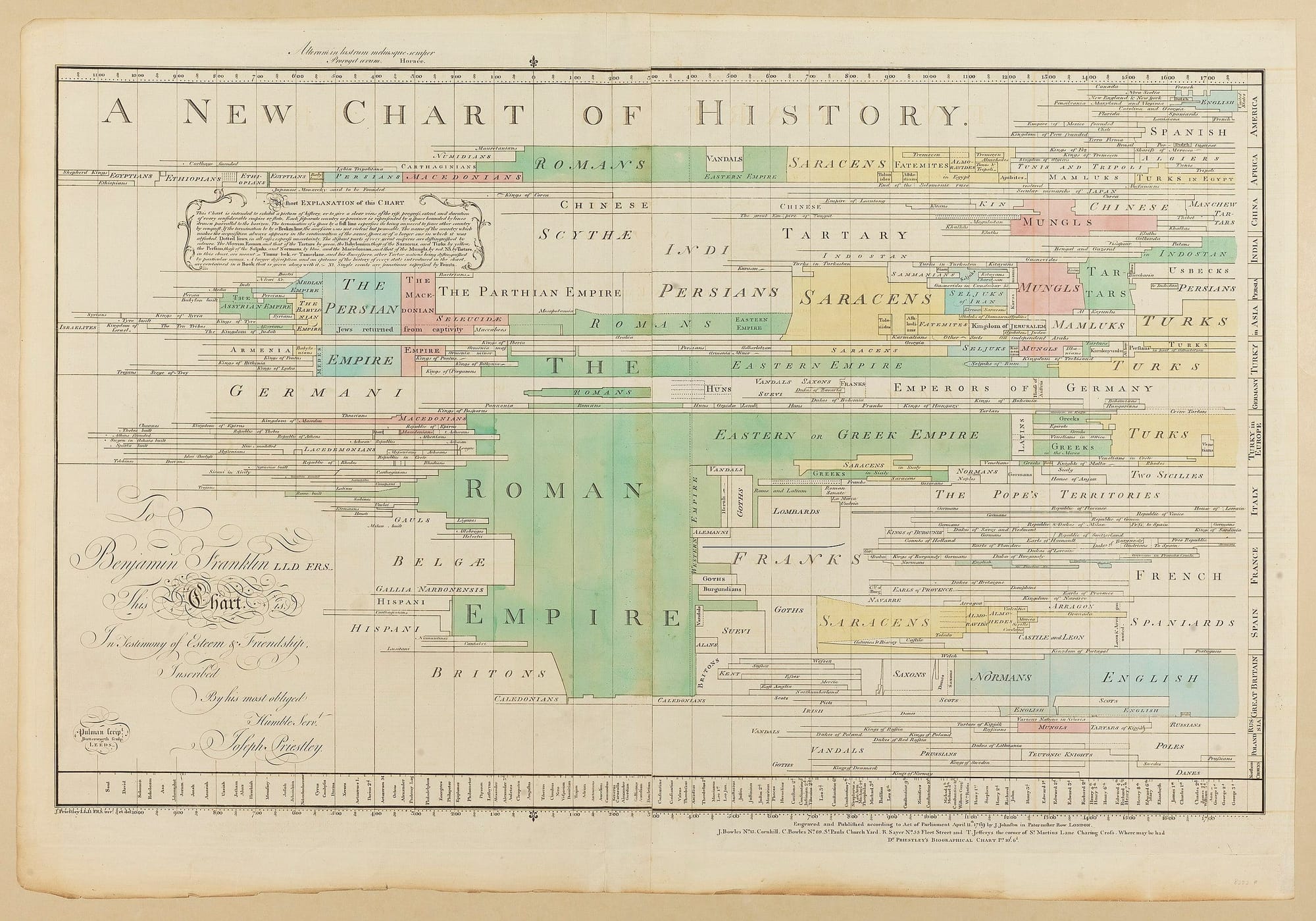
Priestley believed the course of history was set by God’s benevolent will. History is plagued with war, hunger and well…plagues. No mind. Priestley wrote that even “apparent disasters are, in fact, often favourable to the general progress of mankind.”1 He hoped his Chart would help people understand the divine direction of history through “the idea of a measurable space…a line.” Once the space was measured, people began to fill it.
My fourth grade timeline started with stone tools because a Danish museum was cluttered. C.J. Thomson created the three-age system in 18162 as he arranged the National Museum of Denmark’s collections. There is no neutral way to curate objects. The museum’s collections were eurocentric and so the system used to organize them was too. And there there is no neutral way to curate time. Thomson organized the artifacts chronologically into a material timeline. Stone Age, Bronze Age, Iron Age. Good, better, best.
My teachers didn’t talk about God when they taught me to read a timeline, but they did talk about history as progressive process.They’d move their hands to show how far we’ve come, “See? Once we were there, where technology and humanity were worse. And now we are here, where technology and humanity are better.” But we is a word that can hide a lot. They spent more time talking about the rights of man than the transatlantic slave trade. Innovation isn’t always progressive. And oppression sometimes produces a quiet that sounds like peace from a distance.
My textbooks taught me that apparent disaster was really often favorable to the general progress of mankind. When I was taught about slavery and genocide in America, both were depicted as sorrowful requirement of the nation’s progress. The Iraq War was a sorrowful requirement of democracy. Hungry children in America were a sorrowful requirement of capitalism. It took me too long to understand disaster is, in fact, mostly just disastrous.
Was there a timeline on the wall of the fourth grade classroom in Uvalde? Is there a chart that can justify those 77 minutes until they fit within the progress of mankind? And if there was, what would that really mean? Not all progress sustains. Cancers progress. So do wildfires. What end are we moving towards?
Maybe I feel like the world is ending because the world is ending. The end of the world is what people call the collapse of a civilization when it’s their civilization that is collapsing. As the pandemic stretches and fascism rises, structural supports are beginning to give way. When a civilization collapses,, it’s marked by the end of a segment on a timeline. The Bronze Age was a short segment after the Stone Age on my fourth grade timeline. It started in 3000 BC and ended around 1000 BC. The late Bronze Age was a lot like our age - connected, developed, innovative and relatively prosperous. Until it wasn’t.
That segment on the timeline didn’t represent the whole world. It represented a part of the world - the Mediterranean, Egypt, Asia Minor, and the Levant. City-states, trade, organized religion, art and architecture were all innovations in that space during those years. The Sumerians invented the wheel, time and writing. The Egyptians built the Great Pyramid of Giza. And the Mycaneans developed a proto-Greek written language historians call Linear B. The major civilizations in the region engaged in trade and diplomatic relations through international, interconnected relationships. They were moving from there to here, together.
In 1100 BC, everything fell down. No one knows which civilization fell first. Empires were so connected, almost none of them could survive the fall of one.. Just Egypt remained as a great, but diminished, power after the collapse. Trade ceased. Linear B was lost. The Greeks became an illiterate society. Even art seemed to disappear from much of the region for hundreds of years. We’ll never know all that was lost because we lost our knowledge of what was lost.
No one knows what led to the collapse. The leading theory is that everything bad happened all at once. Earthquake storms, climate change and class wars. There are some late Bronze Age Egyptian and Hittite records that claim unnamed invaders came from the sea. No one knows who they were. Scholars today call them the “sea peoples.” Some think they were roaming remnants of a Mycanean empire destroyed by wars between city-states.
Even civilizations that created the wheel, lever and plow could not survive everything bad happening all at once. People died because of the collapse - from hunger, violence and natural disaster. But many lived through it. We tend to forget the people who live through the end of the world. I’ve never heard a scholar ask what it was like to be a mother during the collapse of the Bronze Age. But the question won’t leave me.
How many mothers saw the cracks in the sky before everything fell down around them? What song did a mother sing as she rocked her baby to sleep while the sea peoples appeared over the horizon? What prayer did she pray in the morning when, despite everything, each day had a beginning? What hope did she whisper to her children before she had to leave them at the end of the world?
Maybe being a mother during the collapse of the Bronze Age was a little like being a mother now. The details are a little different. I don’t know when the cracks in this world’s sky first appeared. They go back at least as far as the beginning of the transatlantic slave trade. What world can hold together against the push of so much brutality? Instead of wheels and writing, we invented vaccines and particle colliders. We’ve built no pyramids to be remembered by, unless you count capitalism’s pyramid shaped schemes The Oathkeepers and Proud Boys come by land, not sea. Still. Everything looks so much the same when it’s falling down.
After the collapse, Ancient Greeks lost writing for 300 years. But they didn’t lose stories. Some scholars think The Iliad has been told since at least 2000 BC. That means it existed before the collapse and survived it.The poem was recited for generations while children were born, raised, grew old and died. Writing returned in the form of the Greek alphabet in 800 BC. The Iliad was one of the first things recorded. I wonder if it was a relief to finally set down Achilles’ anger and love.
In the epic, Troy is a Bronze Age Mycenaean city under siege from the Greeks. The Greeks want Helen and everything else inside the city gates. The poem opens ten years into the Trojan War. It’s a male dominated narrative. Women seem to exist to weep, weave and want. But I can just make out the shape of a real Bronze Age mother under the layers of a minor goddess.
Thetis was a beautiful water nymph with veins full of ichor, the incorruptible fluid of immortality. Zeus desired her. But it was prophesied that any son Thetis bore would be greater than his father. Even the gods are restrained by destiny. Zeus did not want to father a son greater than himself. He needed the temptation removed. So he forced Thetis into a marriage with a mortal, King Peleus. Achilles was their son. After his birth, an oracle said Achilles’ would die young. And so his mother would have to learn to grieve.
If I were writing about Thetis holding Achilles, I might write about the panic she felt as she saw his soft spot pulse. His heart and veins were full of blood, not ichor. Her son was mortal. He was born and so he would die. The death of a child is the end of a world. In the poem she weeps, “Ah me, my child. Your birth was bitterness…To a bad destiny I bore you my chambers.” In the hours after the birth of each of my children, I held them and wept. They were born and so they will die. Ah me, my children.
When Achilles was still a baby, Thetis anointed him with ambrosia and then lit a fire so she could burn his mortality away. Peleus stopped her from putting their son into the flames. He thought the fire would kill him. Mortal parents aren’t resigned to death, despite its certainty. As the Trojan War gathered, it was prophesied that Achilles would die in Troy. Thetis and Peleus disguised Achilles as a girl and hid him in the court of another king. When it was prophesied that the Greeks would not win the Trojan War without Achilles, Odysseus sought and then discovered Achilles. Achilles went to Troy, to fight and die. I suppose life finds our children, no matter how cleverly we put them away.
The first word of The Iliad is rage, but before Achilles rages, he mourns. In the last year of the Trojan War, his beloved Patroclus is killed in battle. When Thetis learns of Patroclus' death she sings a threnody, a wailing song for the dead. The dead she sings for is Achilles. She knows he will fight now until he is killed. It is his destiny. But she won’t let him move toward death without protection.
She asks the god Hephaestus to make Achilles, her short-lived son, a shield. Hephaestus consents and fires bronze, tin, gold and silver in his kiln. Before he begins his work, he says,“I wish that I could hide him away from death, as surely there shall be fine armor for him…” Hephaestus is the god who forged Pandora and her jar. He helped tip death into the world, but he cannot stop it up again.
After the shield was forged and its silver strap fitted, Hephaestus engraved it with scenes of creation held in nine concentric circles. The center circle held the earth, the sky, the sea, the sun, the moon and the constellations. In the outermost circle he “poured the ocean round,’Oceanus was the river that surrounded the world. In the circles between the stars and the sea, he etched weddings and a war. Fields furrowed and fields cut. A market and music. A quarrel and a hearing. Herdsmen protecting cattle from hungry lions. Fair forests and fleecy flocks. Girls and boys gathering grapes from heavy vines in one circle and dancing hand in hand in another.
When Thetis presented the shield to Achilles, she gave him an elegy for existence etched in bronze. He holds it in front of him as he rages against the Trojans. Zeus calls the gods and tells them to fight alongside the Trojans because, when Achilles’ “heart is grieved and angered for his companion’s death, I fear against destiny he may storm their fortress.” Zeus was restrained by destiny. Achilles rages against it. But destiny isn’t shaken. Achilles’s end waits in the days just beyond the poem’s last line. 4000 years after the story was first told, his death still comes too soon.
Thetis had a shield made for her son who could not be shielded. Child, I know you will die, but not like this. Hephaestus carved creation for a mortal who would be destroyed. It is not nothing to hold the world as you rage against a destiny you cannot shake.Why did they try to do what they knew could not be done? Maybe the gods forge because they cannot pray. I pity them, a little. It would be difficult to face the end of the world without some sort of prayer.
The ancient Greeks prayed with burnt offerings.. The poet writes that “the savor of the burning swept up in circles up into the bright sky.” When they accepted the offering, the gods of Olympus turned their heads toward the scent and breathed in deeply. They wanted to be worshiped with the fragrance of mortality. It’s got so much more savor than any nectar.
Maybe I feel like the world is ending because I was taught the world had a beginning. What if nine concentric circles hung on my classroom wall instead of a line? Without segments, I wouldn’t know how to find an end. I might not know to look for one. Of course, I might I feel like the world is ending because the world is ending. And so what then?
What song will I sing as I rock my children to sleep? It is not nothing, to hold the world. What prayer will I pray for each child in the morning when, despite our certain end, each day has a beginning? You will die, but not like this. What hope will I whisper to my children before I have to leave them at the end of the world? Maybe one day, our rage will be so great, it will shake destiny and we’ll live though we were made to die. It almost happened once before, at the end of another world.

